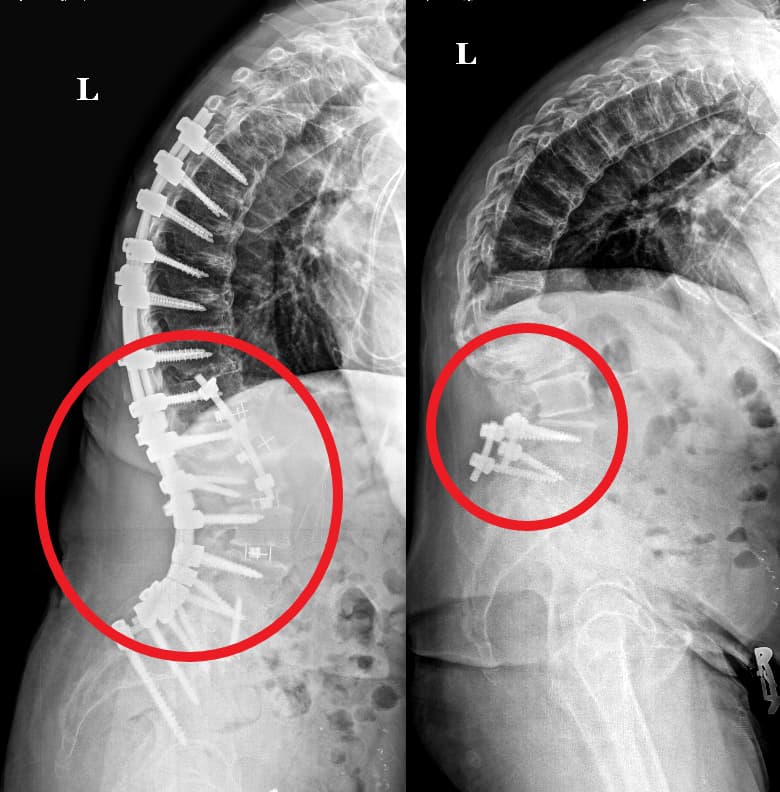Common reasons for revision surgery include:
- Failed Spinal Fusion (Pseudoarthrosis): The bones do not properly fuse together after a fusion surgery.
- Hardware Failure: Screws, rods, or other implants used in the initial surgery may loosen, break, or shift.
- Recurrent Disc Herniation: The same disc that was previously treated re-herniates.
- Adjacent Segment Disease: The vertebrae above or below a fused segment develop new problems due to increased stress.
- Inadequate Decompression: The first surgery did not fully relieve pressure on the spinal nerves.
- Spinal Instability: The spine remains unstable or becomes unstable after the initial procedure.
Revision surgery is typically more challenging than a primary surgery due to the presence of scar tissue and altered anatomy from the first operation. The surgeon's goal is to address the underlying problem and restore stability, but the procedure carries higher risks and often has a longer recovery period.
